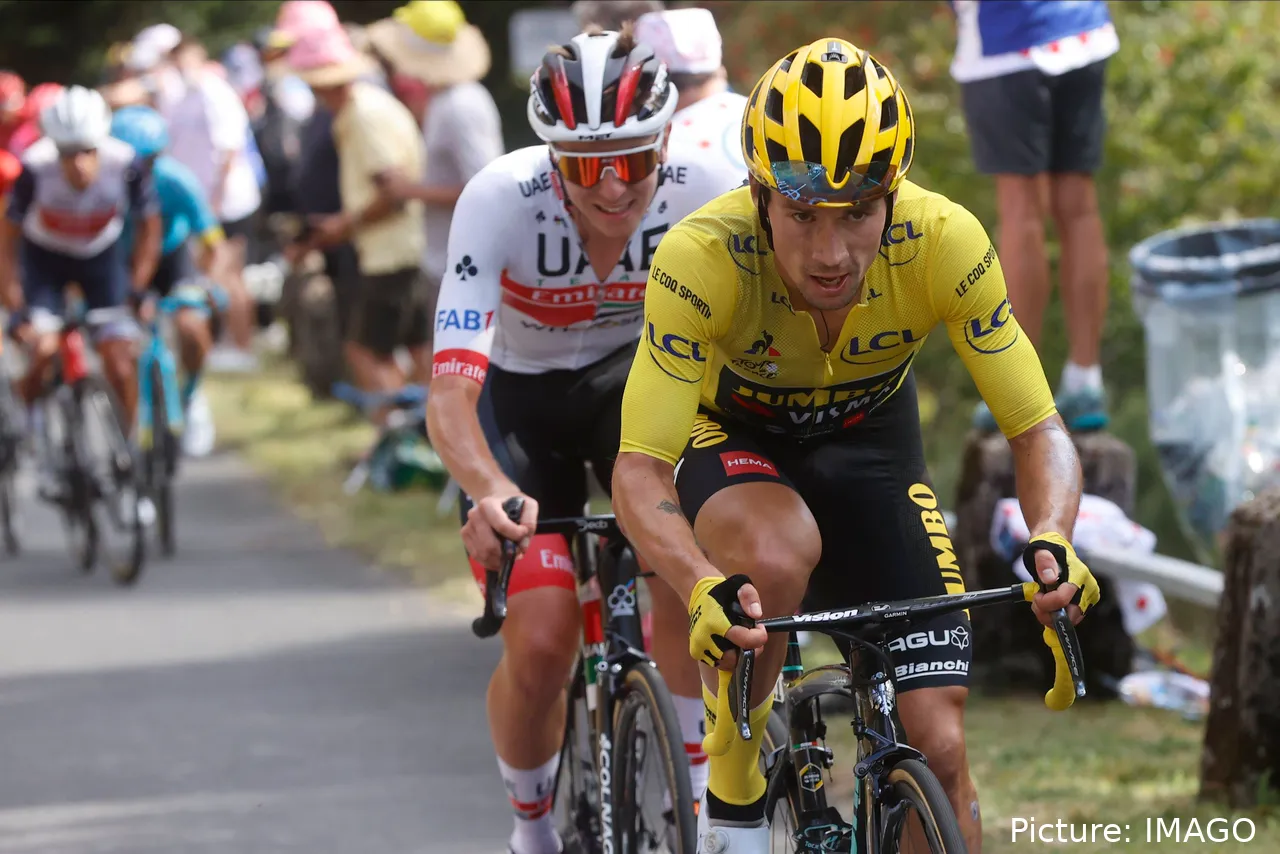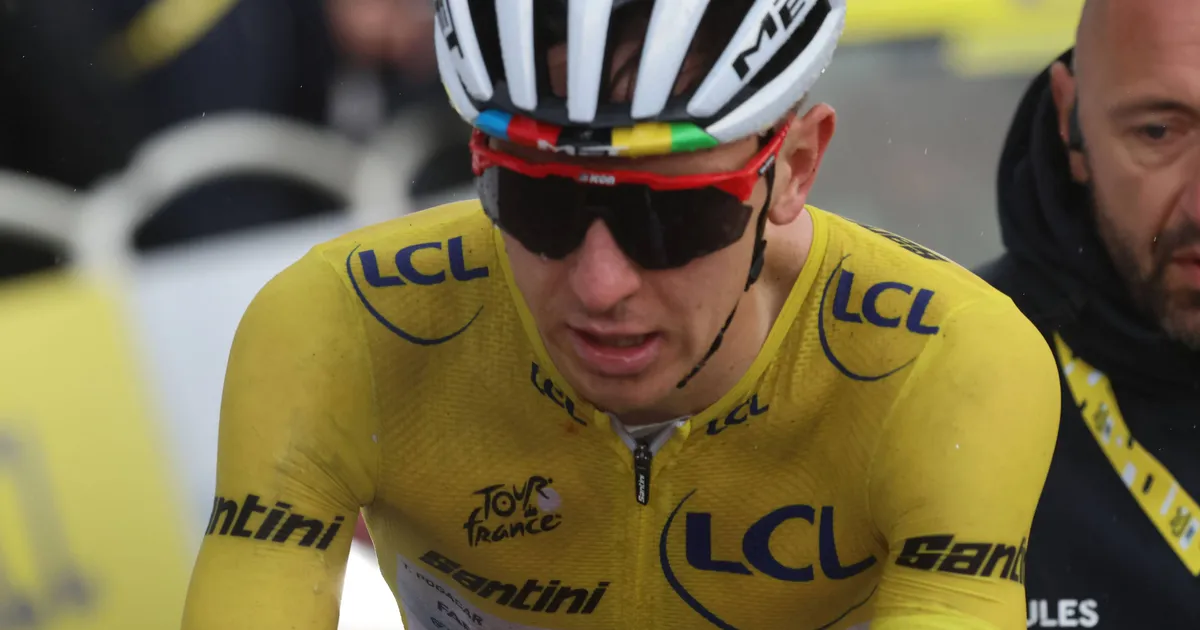From frustration to admiration: Slovenia’s Pogacar paradox
The statement may raise eyebrows internationally, but within Slovenia, it was an emotional moment: Roglic was already a national hero, and his collapse in the time trial on La Planche des Belles Filles felt like a heartbreak for many. But sentiment soon turned. “Two years later, everyone had grown to love him,” Erzen said. “And now he’s probably the greatest Slovenian sportsman of all time. Yes, I’d even say he’s bigger than NBA star Luka Dončić.”
That evolution says as much about Pogacar’s ongoing brilliance as it does about the expectations placed on athletes in Slovenia’s tight-knit sporting community.

Pogacar took the Maillot Jaune from compatriot Roglic in a thrilling finale to the 2020 Tour de France
Carrying the torch — but in their own way
While he’s quick to distance himself from any direct comparison, Erzen is undeniably part of the new wave of Slovenian talent making its way through the pro ranks. Alongside riders like Gal Glivar and Jakob Omrzel, he represents the next generation hoping to write their own chapters in the country’s golden age of cycling.
And they’re doing so with the support of those who’ve come before. Pogacar, for example, is already investing in the future through his Pogi Team youth development projects, helping ensure that financial barriers don’t block access to the sport’s highest levels. “It’s brilliant to see these Slovenian cycling icons playing such an active role in the future of the sport,” Erzen said. “They’re contributing through foundations and funding, giving talented young riders — even those without access to proper facilities — a real chance to prove themselves.”
For Erzen, though, the goal isn’t to become the next Pogacar — it’s to become the first Zak Erzen. “Every five years or so, a really strong generation comes through in Slovenia,” he explained. “Hopefully I’ll be part of the next one. But the only thing you can do is focus on your own path.”
